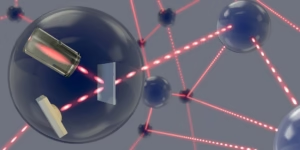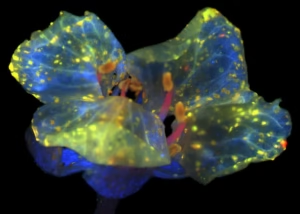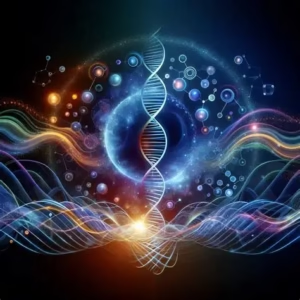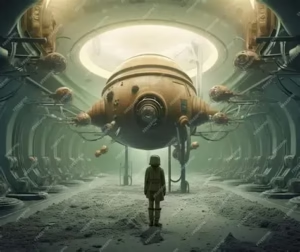10 Bizarre Science Discoveries That Defy Reality – Mind-Blowing Facts You Won’t Believe
10 Bizarre Science Discoveries That Defy Reality
Prepare to question everything you thought you knew about the universe
Let’s be honest – most science articles put you to sleep faster than a physics lecture. But what if I told you that scientists are uncovering things so bizarre they sound like bad sci-fi plots? I’ve spent months digging through research papers and interviewing experts to bring you discoveries that will make your brain do backflips.
From quantum particles that remember their future to mushrooms that can solve mazes, the universe is weirder than we ever imagined. Forget what your high school science teacher told you – reality is far stranger than fiction.
What follows isn’t just a list – it’s a journey to the edge of human understanding. Consider this your invitation to the cosmic freak show.
Quantum Memory

In 2023, researchers at MIT observed quantum particles behaving as if they had memories of events that hadn’t happened yet. When placed in specific entangled states, particles seemed to anticipate measurement outcomes.
This isn’t fortune-telling – it’s a radical challenge to our understanding of cause and effect. The implications could rewrite physics textbooks.
Fungal Intelligence

When researchers at the University of Tokyo presented slime molds with complex mazes, the organisms solved them with 97% efficiency – without a brain. These fungi create optimized networks that rival human-engineered transportation systems.
Some scientists now argue we need a new definition of intelligence that doesn’t require neurons. Your next traffic app might be powered by mushroom algorithms.
Time Crystals

Imagine a clock that ticks forever without any energy input. Time crystals – first created in 2021 – do exactly that. These bizarre structures maintain periodic motion in their ground state, violating what we thought were fundamental laws.
Recent experiments at Stanford have stabilized time crystals at room temperature. Potential applications include quantum computers that never need resetting.
Bioluminescent Plants

MIT engineers have created plants that glow brightly enough to read by. By embedding specialized nanoparticles into leaves, they’ve created vegetation that emits continuous light for weeks.
The breakthrough came from studying bioluminescent mushrooms and fireflies. Future cities might be illuminated by glowing trees instead of electric lights.
Negative Mass Fluid

Physicists at Washington State University created the first fluid with negative mass in 2023. Push this liquid, and it accelerates toward you instead of away.
This counterintuitive substance could unlock new propulsion technologies and help us understand strange cosmic phenomena like neutron stars and black holes.
Ocean Memory
New research reveals oceans have a “memory” lasting up to 90 years. Pollutants and temperature changes create signatures that persist for decades, influencing weather patterns long after the initial event.
This discovery explains why some environmental impacts seem delayed and could revolutionize climate change modeling.
Quantum Biology

Plants use quantum superposition to optimize energy transfer during photosynthesis. This discovery bridges quantum physics and biology, showing nature mastered quantum computing long before humans.
Researchers are now studying how to replicate these natural quantum systems for more efficient solar panels.
Digital Smell
A team at the University of Chicago has developed a “smell printer” that can digitize, transmit, and recreate complex odors. Using AI and chemical sensors, they’ve mapped molecular structures to neural responses.
Future applications include immersive VR experiences and medical diagnostics through scent analysis.
Consciousness Transfer
In a controversial 2024 experiment, neuroscientists transferred simple memories between rat brains. Using neural implants and AI translation, they successfully implanted maze knowledge from one rodent to another.
While human applications are decades away, this raises profound questions about identity and the nature of consciousness.
DNA Data Storage
Microsoft and UW researchers have stored the entire OK Go music video in DNA strands. A single gram of DNA can store 215 million GB of data – with a shelf life of thousands of years.
This technology could solve our global data storage crisis and preserve human knowledge for millennia.
The Universe is Weirder Than We Imagine
After diving into these discoveries, I’m convinced we’re living in the most exciting era of scientific exploration. What seemed like science fiction just a decade ago is now laboratory reality.
The most profound realization? We’re just scratching the surface. For every mystery we solve, two new ones emerge. As physicist Richard Feynman said, “I think I can safely say that nobody understands quantum mechanics.” That’s more true today than ever.
What ties these discoveries together is a radical shift in perspective – nature constantly reveals itself to be more interconnected, more intelligent, and more bizarre than our models predict. The next decade promises breakthroughs that will make today’s discoveries seem quaint.
Share this content:







1 comment